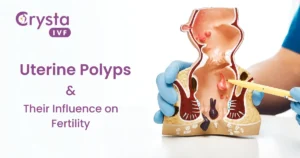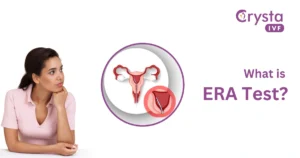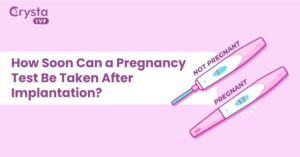How amazing life would be if everything went according to plan. But that’s not how life usually unfolds. Sometimes, even when everything is alright, life throws a curve ball towards you. This is the story of countless women who wish to become mothers but cannot do so even when everything is alright within them.
Trying to conceive can be a joyous journey, but for many couples, it becomes a frustrating and heartbreaking struggle. When everything seems “normal” – regular cycles, healthy sperm, no obvious medical conditions – the question arises: Why can’t I get pregnant?
While the diagnosis of “unexplained infertility” can feel isolating, it’s important to realise that it’s not uncommon. Up to 20% of couples trying to conceive face this issue. The truth is that the human reproductive system is intricate and delicately balanced, and subtle factors, both physical and emotional, can play a role in its success.
Reasons for not getting pregnant when everything is normal
When initial medical evaluations show “normal” results, it’s easy to feel confused and lost. However, it’s crucial to understand that “normal” in fertility testing covers a broad spectrum. Subtle imbalances or undetected issues can still hinder conception. Are you also someone who is dealing with similar problems? These are the most common causes of female infertility:
- Challenges with Ovulation: Conditions like polycystic ovary syndrome (PCOS) or hypothalamic dysfunction can throw a wrench into the regular hormonal cycles necessary for ovulation. PCOS wreaks havoc with hormonal balance, impacting egg production, while hypothalamic dysfunction causes disruptions in the hypothalamus, throwing a wrench into the reproductive hormonal cycle.
- The Fibroid Factor: Uterine fibroids, those pesky growths, might alter the uterine landscape, blocking fallopian tubes or meddling with embryo implantation. These fibroids can jumble up the uterine system, making it tough for embryo implantation to occur, thus affecting fertility or increasing the risk of miscarriage.
- Endometriosis Woes: This condition prompts the lining of the uterus to grow outside its usual boundaries. This abnormal growth triggers inflammation, scarring, and adhesions in the pelvic zone. These complications throw the ovaries, fallopian tubes, and uterus out of their natural rhythm, hindering egg release, fertilization, or implantation.
- Cervical Mucus Conundrum: The role of cervical mucus in fertility is pivotal. Thick cervical mucus can transform into an unwelcoming environment for sperm, hampering their journey through the cervix to reach the fallopian tubes for fertilization. This hurdle significantly lowers the chances of conception.
- Blocked Tubes: Scarring, inflammation, or blockages within the fallopian tubes can disrupt the journey of eggs from the ovaries to the uterus or impede sperm’s quest to meet the egg. This hurdle puts a spoke in the wheel of natural fertilization, preventing the egg and sperm rendezvous, leading to infertility or a higher risk of ectopic pregnancy.
- Age-Related Hurdles: As the years pass, women experience a decline in both egg quantity and quality. This downward slope in ovarian reserve impacts fertility by reducing the odds of successful conception and upping the odds of chromosomal irregularities in embryos. This factor contributes to a fertility dip as women approach their late 30s and 40s.
- Undiagnosed Health Conditions: Medical glitches like thyroid disorders or autoimmune diseases can upset the hormonal balance crucial for conception. Thyroid imbalances jumble up hormone levels necessary for ovulation, while autoimmune conditions spark inflammation that affects the reproductive organs, potentially putting the brakes on fertility and conception. Identifying and managing these conditions is key to optimizing fertility.

Life’s Non-Stop Interference: The Undeniable Role of Lifestyle and Mental Well-being
While medical aspects wield considerable power, non-medical elements like lifestyle and mental health quietly pull strings in your fertility tale. Here are some influential players:
- Stress and Anxiety: Prolonged stress flips the switch on cortisol release, upsetting the delicate harmony of reproductive hormones. This disruption leads to irregular or absent ovulation. Elevated stress levels tinker with the hypothalamus, throwing off the release of gonadotropin-releasing hormone (GnRH), subsequently jumbling the menstrual cycle and hampering egg release, dimming fertility prospects.
- Diet and Exercise: Poor eating habits or excessive exercising can unbalance the crucial hormones required for ovulation. Insufficient nutrition might derail menstruation or ovulation, while excessive exercise can throw hormones out of whack, messing with the menstrual cycle and potentially compromising egg quality, denting the prospects of conception.
- Weight Rollercoaster: Both being underweight and carrying excess weight can rattle hormonal equilibrium, adversely affecting ovulation and egg development. Too much or too little body fat throws hormone levels off-kilter, disturbing the regularity of menstrual cycles and jeopardizing egg release and quality, thereby compromising fertility.
- Smoking and Alcohol: Lighting up and knocking back excess alcohol can deal a blow to reproductive health. Smoking speeds up egg depletion and damages eggs, while alcohol disturbs hormone levels and sperm quality. Both substances serve a sucker punch to fertility by reducing egg quality and sperm potency, hiking the risk of infertility, miscarriage, or birth defects.
- Toxins in the Air: Exposure to various chemicals, pesticides, pollutants, and hormone-disrupting substances in the environment can meddle with hormone balance, casting a shadow over reproductive health. These toxins can throw ovulation out of gear, impair sperm quality, or even cause genetic changes in eggs or sperm, leading to fertility woes or complications in conception and pregnancy. Keeping away from such toxins is pivotal for reproductive well-being.
Tackling these lifestyle facets, effectively managing stress, and seeking mental health support when necessary can tip the scales in favour of optimizing your fertility potential.
Holding Onto Hope with Crysta IVF: A Beacon in the World of IVF
Navigating female fertility challenges can be an emotional rollercoaster, but options exist for those yearning for a successful pregnancy. Enter Crysta IVF, the beacon of hope nestled in Noida. Crysta IVF boasts cutting-edge technology and seasoned specialists ready to walk you through every twist and turn. Some potential treatments and technologies on offer at Crysta IVF include:
- Ovulation Stimulation: Medications that kickstart ovulation if your cycles are irregular.
- Intrauterine Insemination (IUI): A procedure involving depositing sperm directly into the uterus to up the odds of fertilization.
- In Vitro Fertilization (IVF): This advanced technique merges eggs and sperm in a lab, crafting an embryo transferred to the uterus.
- Laparoscopy or Hysteroscopy: Minimally invasive procedures that diagnose and treat issues like uterine fibroids, endometriosis, or tubal blockages.
- Egg Freezing: An option allowing you to preserve your eggs at a younger age for future use.
Consulting Crysta IVF’s fertility specialists empowers you with insights into your specific diagnosis, opens doors to diverse treatment options, and steers you through the maze of parenthood with expert guidance.

Armed with knowledge, explore options like Crysta IVF, the top-notch IVF clinic in Noida. With the right backing and understanding, you can navigate this journey with resilience, paving your way toward a rewarding future. Head to Crysta IVF’s website, https://crystaivf.com/ and snag your appointment today!
 Verified by Crysta IVF Fertility Experts
Verified by Crysta IVF Fertility Experts
Related Blogs
Difference between Sterility and Infertility: Understanding the Contrast




